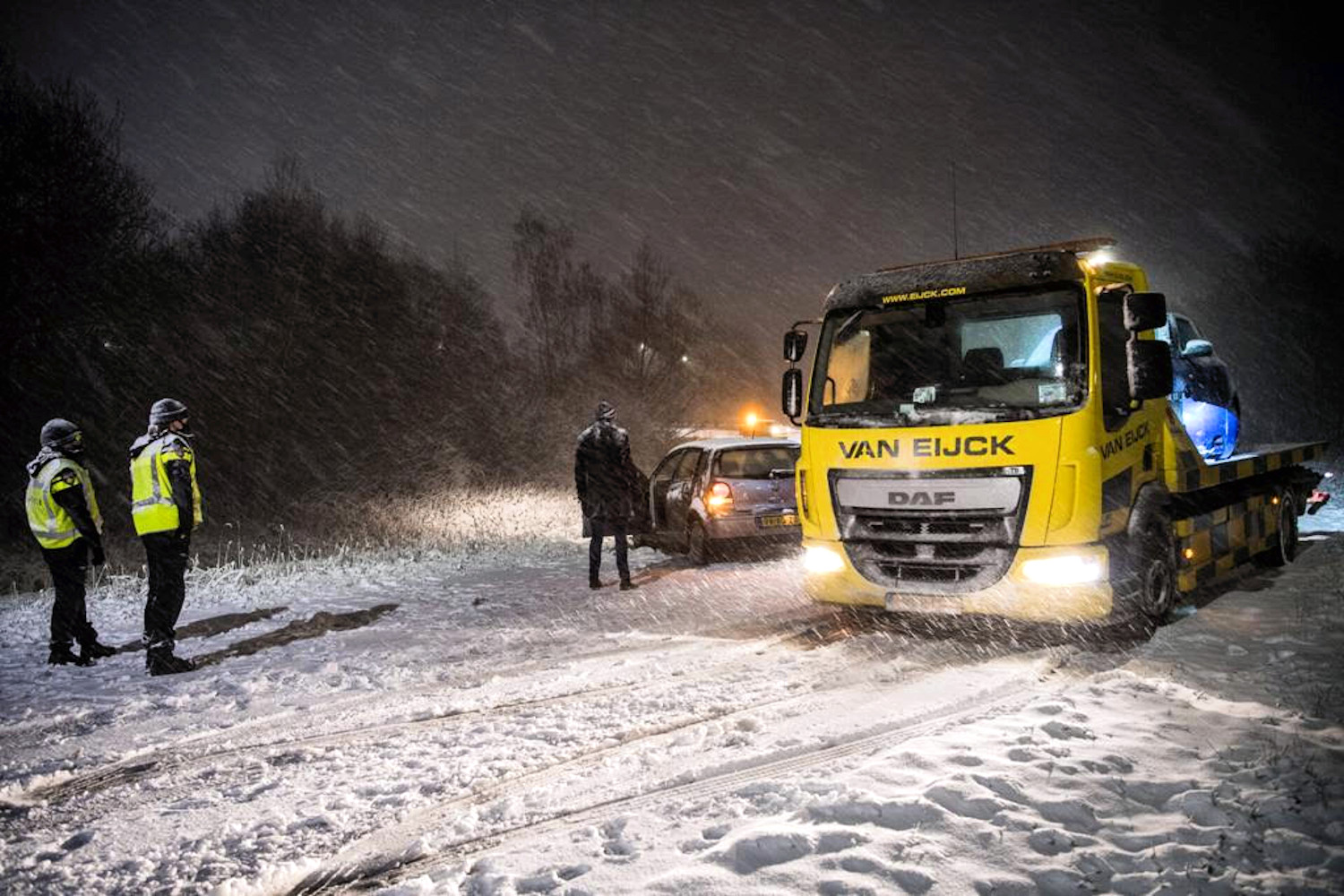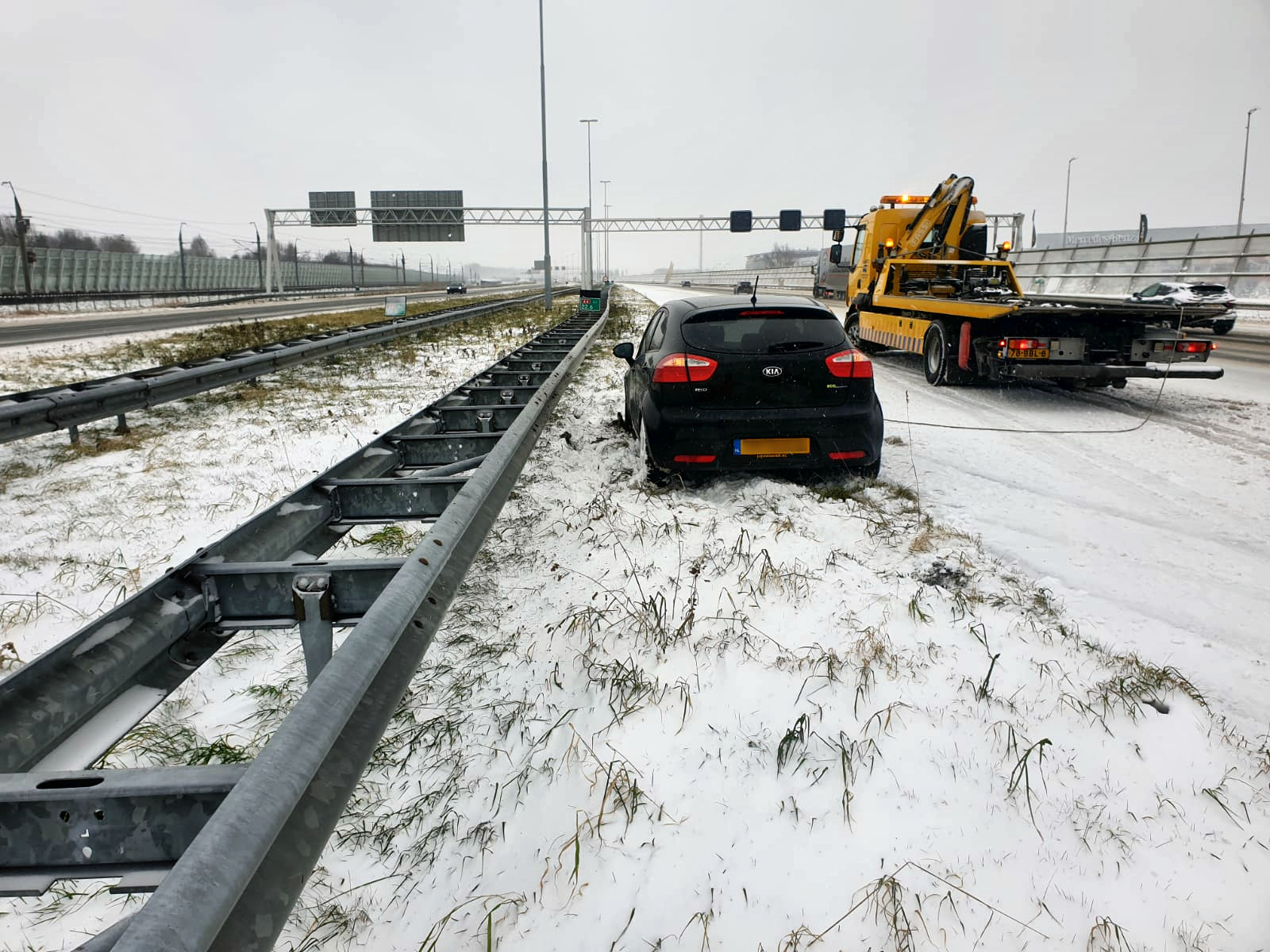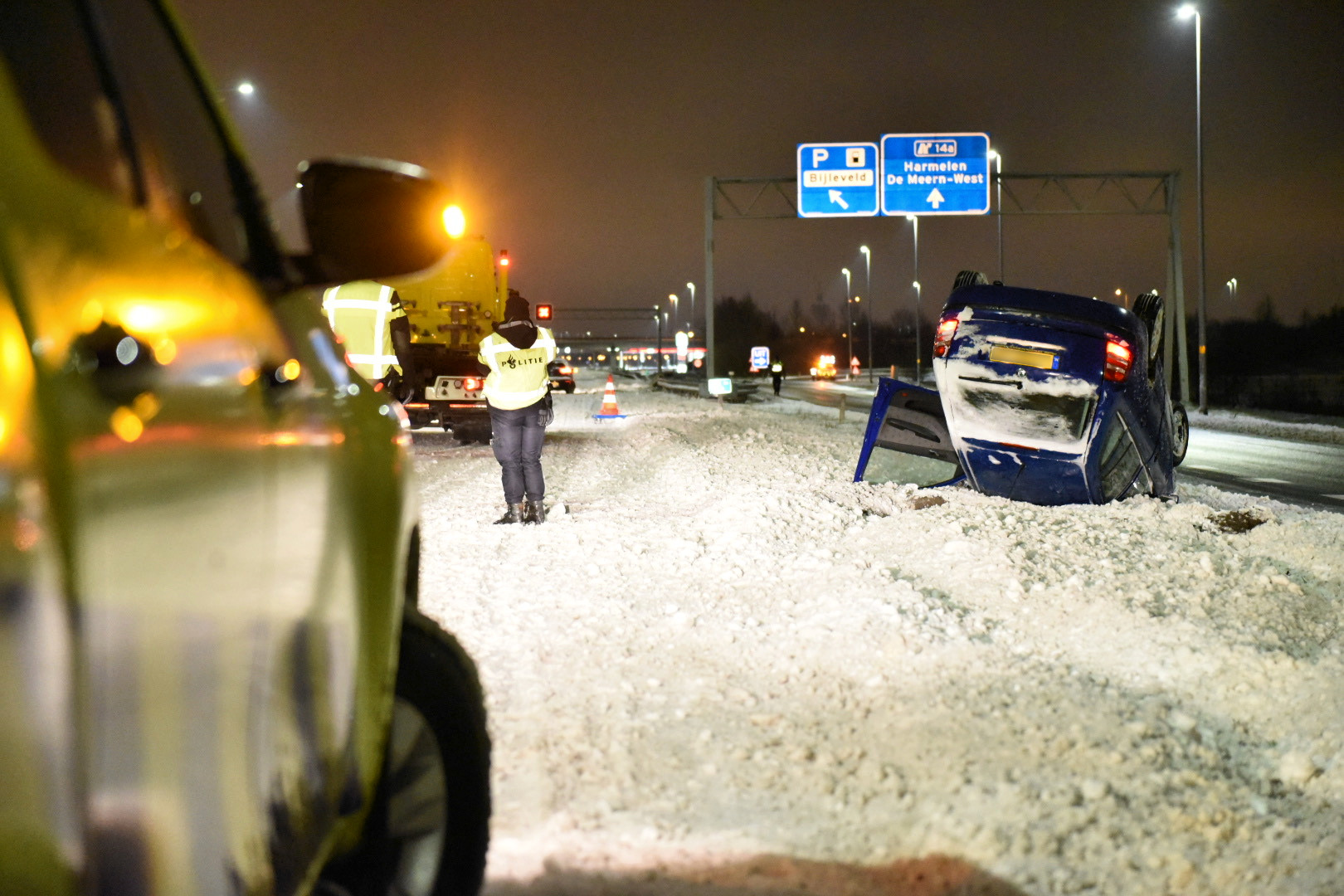No NS, but we do have Van Eijck
Monday, 8 February 2021
On 7 February, IM recovery operators had one of the busiest days in the history of incident management in the Netherlands. Snow had fallen, making the roads so slippery that Rijkswaterstaat strongly advised motorists not to take to the roads. However Dutch national train operator NS had suspended services, so hundreds of thousands of Dutch citizens were forced to ignore that advice. They hit the road, and that led to the greatest number of stranded vehicles on a winter's day ever recorded.

Van Eijck Mobility at the Sint Annabosch interchange, south of Breda, on 6 February at 11:59 p.m.
SIMN's National Central Reporting Point (LCM) received 791 reports of accidents and breakdowns or stranded vehicles on roads in the Netherlands. This topped the previous record for such reports, dating back to 27 July 2018, by 63. Many of these reports related to collisions. By 3:00 p.m., IM recovery operators had already dealt with 158 accidents. That's three times as many as the number recorded in a whole day, under normal circumstances. Nearly one fifth of these skids and slips were in the area covered by Van Eijck Mobility, in Hulten. This company operates in Noord Brabant and the southern part of Gelderland. These were the parts of the country in which the most snow had fallen overnight.

Bergingscentrale H v.d. Vliet on an almost deserted A4 at Roelofarendsveen, on 7 February 2021 at 9:50 a.m.
Call-outs reached a peak in the early afternoon. By that point, snow was also falling in the north, and recovery operators throughout the country were hard at work, trying to keep the roads clear. The operators at Bergnet in Amsterdam were called out 24 times between 3:00 p.m. And 6:00 p.m. BCU took first place in Utrecht, with 19 call-outs between 6:00 p.m. And 9:00 p.m. Although the people at BCU themselves weren't fazed by this amount of work. Managing director Tom van Oort "was expecting carnage". Total collisions for the day as a whole came to 297. That meant that it easily reached second place in the list of days with the highest number of accidents since 2010. The only day on which greater havoc resulted was 7 January 2017. On that occasion, freezing rain accounted for 366 collisions on IM roads.

BCU on the A12 at 7:30 p.m. (photo: Michiel van Beers)
Even after the start of the curfew, at 9:00 p.m., there was still a troubled picture. There were a further 80 IM reports, primarily in the north of the country. Delta Berging & Transport, in Lelystad, was called out ten times, particularly to recover cars that had been caught in snowdrifts on the A6. A close second was Takel- en Bergingsbedrijf Poort, in Groningen. Those call-outs were caused by the same natural phenomenon, on the A7 at Hoogezand: "It looked lovely, though!"
Days with the most IM reports since 2010
| rank | date | number | main cause | |
|---|---|---|---|---|
| 1 | vr 26-07-2019 | 898 | heat | |
| 2 | do 25-07-2019 | 843 | heat | |
| 3 | zo 07-02-2021 | 791 | slippery road conditions | |
| 4 | di 25-06-2019 | 790 | heat | |
| 5 | wo 24-07-2019 | 754 | heat | |
| 6 | vr 27-07-2018 | 728 | heat | |
| 7 | za 07-01-2017 | 707 | slippery road conditions | |
| 8 | di 27-08-2019 | 705 | heat | |
| 9 | di 23-07-2019 | 704 | heat | |
| 10 | do 01-03-2018 | 676 | koude |